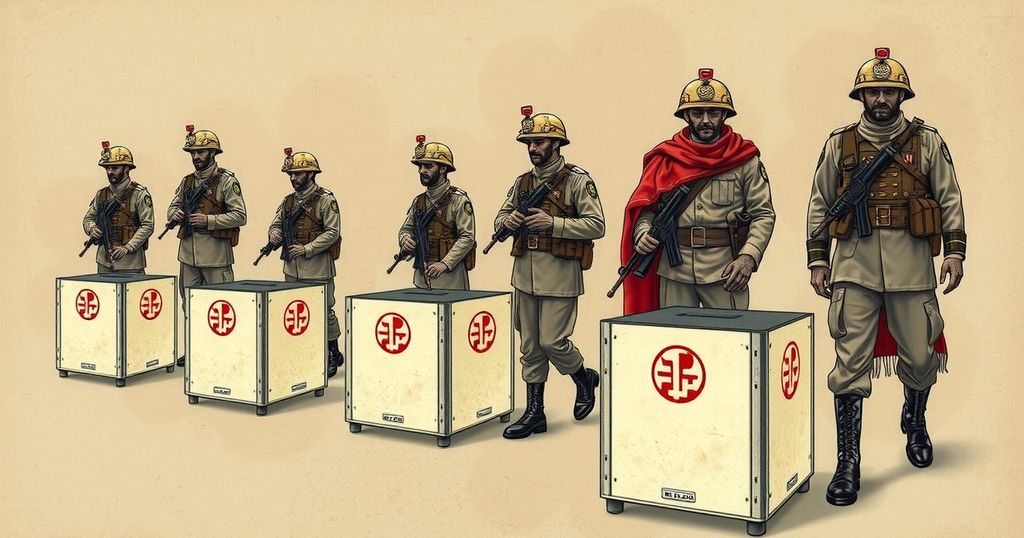Chad Holds Elections Amid Opposition Boycott and Allegations of Fraud

Chad conducted legislative, provincial, and local elections after three years of military rule, facing an opposition boycott. Accusations of electoral fraud and concerns about the legitimacy of the process have persisted, with significant challenges to free and fair voting in the backdrop of ongoing violence and media censorship.
On Sunday, Chad commenced voting for its legislative, provincial, and local elections, marking a significant development after three years under military governance. These elections, characterized by the government’s assertion that they represent the final phase of a political transition, are facing a boycott from opposition parties. They assert that last year’s presidential elections were marred by fraud, leading to a lack of confidence in the electoral process.
The boycott positions candidates aligned with Marshal Mahamat Idriss Itno, the military leader who assumed power in 2021, to dominate the elections. Critics, including opposition figure Succes Masra, urged citizens to abstain from voting, denouncing the electoral system as one built on deceit. He articulated concerns over alleged pre-determined results, claiming, “The fabricated results are already in the computers.”
Further accusations arose from the opposition Democratic Party of the Chadian People (PDPT), which reported instances of missing ballots in some regions, underscoring fears of widespread electoral fraud. Approximately eight million voters were expected to participate amid scrutinizing eyes of foreign observers and political party representatives.
The elections occur against a backdrop of violence from the Boko Haram insurgency and heightened tensions with France, once a colonial partner. The ruling government has framed the elections as a critical step towards restoring democratic governance despite opposition claims of increasing authoritarianism. Itno maintains legitimacy after winning a contested five-year term in May 2022, following the death of his father, who had ruled for over thirty years.
Previous planned elections were delayed due to various crises, but with a transition parliament in place, these elections are being conducted amidst claims of oppression and media censorship, particularly affecting the country’s private press. This electoral cycle carries with it the weight of significant political turmoil and public unease influenced by past violent incidents involving dissenters.
Chad has experienced considerable political upheaval in recent years, particularly following the death of long-standing leader Idriss Deby Itno in 2021, who ruled for over three decades. The subsequent rise to power of his son, Mahamat Idriss Itno, through a military takeover has drawn scrutiny and allegations of electoral misconduct. The nation has faced extended periods of instability, marked by threats from extremist groups and significant challenges in establishing democratic governance in the face of opposition protests and a lack of press freedoms. The political landscape has generated mounting concerns regarding the legitimacy of elections and the eventual transition from military to civilian rule.
The elections in Chad represent a crucial test of the country’s political future following years of military leadership and ongoing opposition boycotts. The environment surrounding these elections is fraught with allegations of deceit and fraud, diminishing public trust in the electoral process. Moreover, with significant social unrest and a lack of independent media coverage, the path towards a stable and democratic governing framework remains uncertain, underscoring the complex dynamics at play in Chad’s political landscape.
Original Source: www.france24.com







